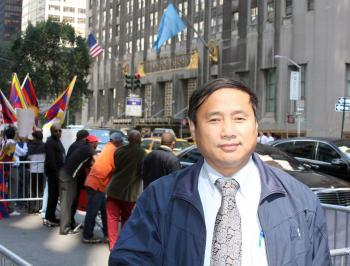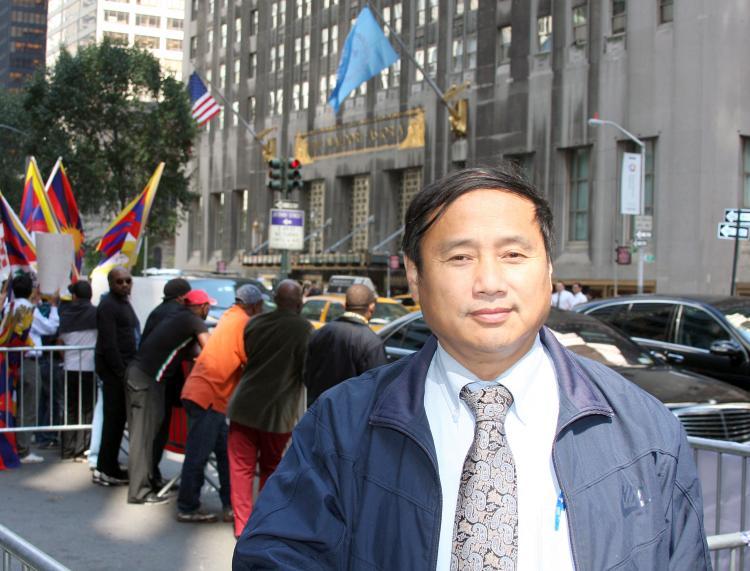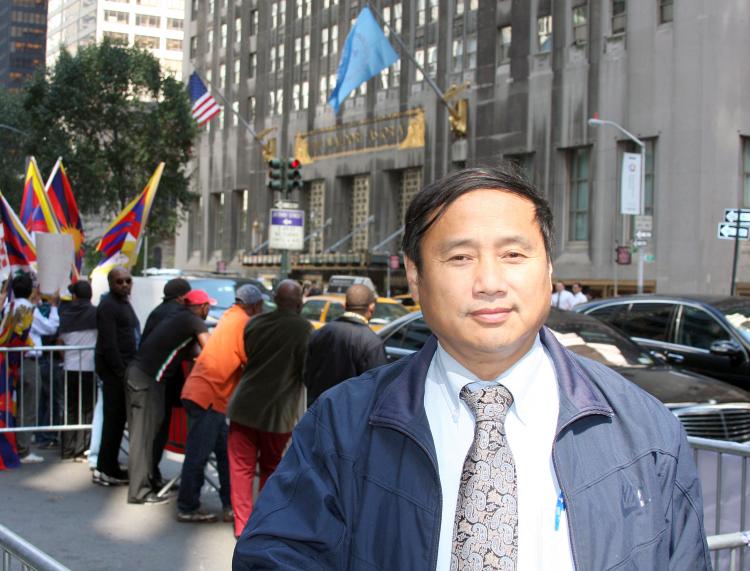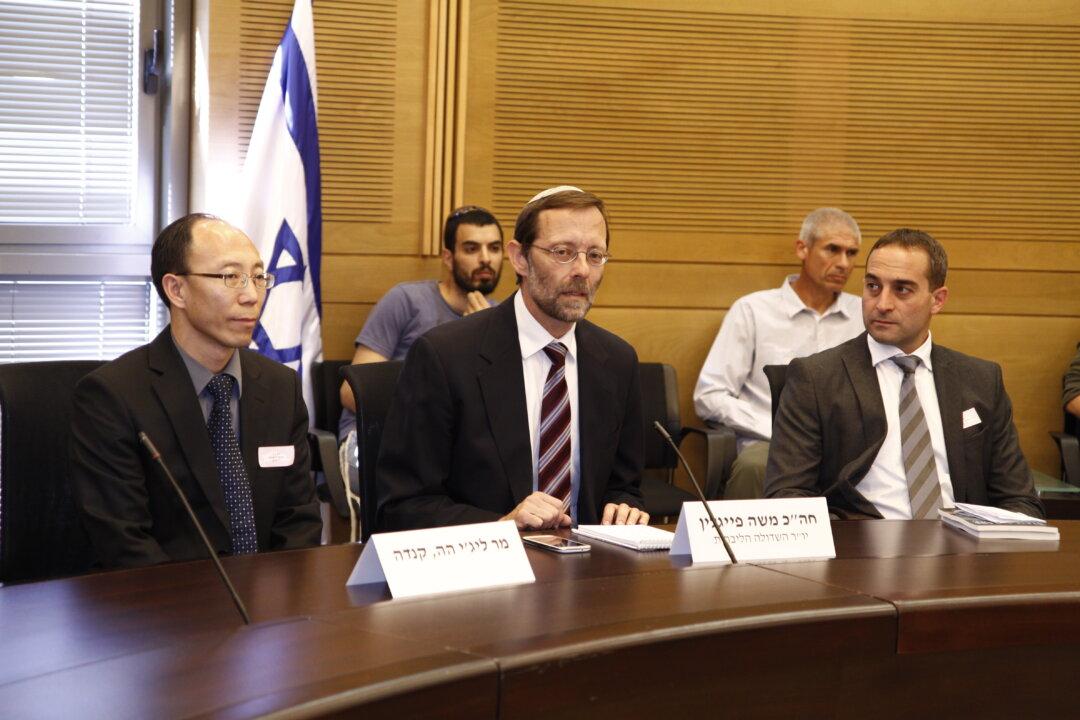Tiananmen Square Democracy Leader Urges Chinese Premier to Drop Dictatorship
Hundreds of China Democratic Party members protested in front of the Waldorf-Astoria hotel on Tuesday.

DEMOCRACY FOR CHINA: Wang Juntao, sentenced to 13 years in prison by Chinese authorities for organizing student demonstrations in Beijing in 1989, spoke outside the Waldorf-Astoria Hotel on Tuesday during the visit of Chinese Premier Wen Jiaboa. Ben Kaminsky/The Epoch Times
|Updated:





